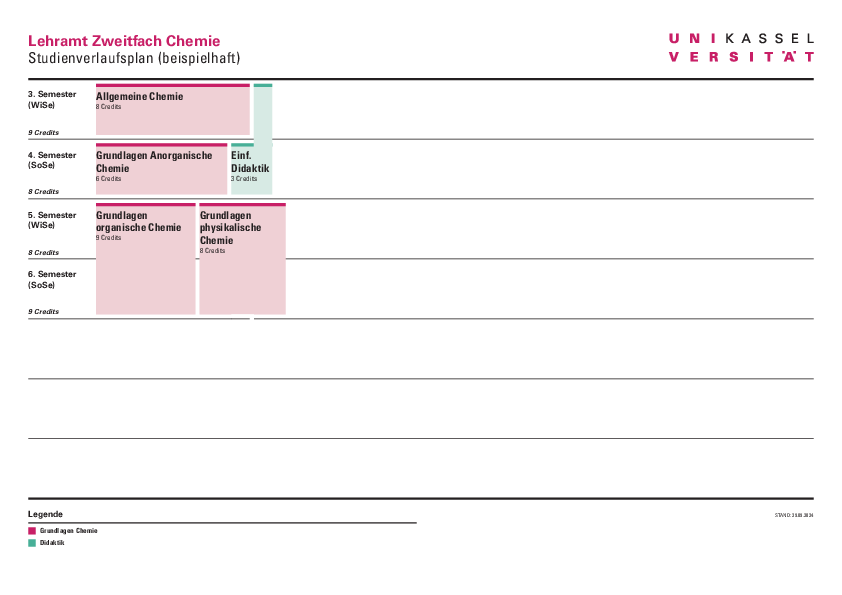Study structure
The content on this page was translated automatically.
The study program has a modular structure. In the first year of study, students acquire basic knowledge of general chemistry. Students are expected to acquire subject-specific scientific content as well as to deal with the structure, history and practical implementation of chemistry. Course content includes:
- Familiarity with and critical appreciation of the procedures and intellectual structure of an experimental natural science.
- Understanding of simple chemical relationships through application of basic principles and concepts.
- Ability to independently acquire relevant encyclopedic knowledge based on basic material knowledge in a situational context.
- Ability to correctly articulate subject-specific knowledge
- Practical manual skills in the context of an experimental natural science (safe handling of standard laboratory equipment and chemicals within the framework of legal regulations)
- Ability to solve real-life technical problems
- Ability to engage in practice-related subject-specific discourse Teaching-relevant didactic approach in the dimensions of knowledge reorganization and transfer with emphasis on lateral linkages.
An internship is mandatory. The selection of topics in the internship is also based on aspects of chemistry didactics and the feasibility of experiments in schools.
At first glance, study plans show at what point in time the compulsory and elective modules are to be completed. This sequence is not to be understood as a rigid structure, there is usually a certain flexibility in the semester allocation. However, the completion of individual modules may depend on the prior successful completion of other modules.
Sample Curricula
Chemistry (Business Education and Vocational Education)



